 Leading Blog | Posts by Month |
 Leading Blog | Posts by Month |
06.29.07

History Speaks on Change and Innovation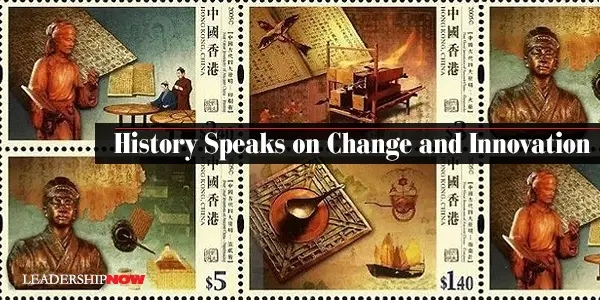
THE legendary historians Will and Ariel Durant distilled the lessons of thousands of years of history to give us this balanced conclusion regarding change: Out of every hundred new ideas ninety-nine or more will probably be inferior to the traditional responses which they propose to replace. The tension between the old and the new produces thoughtfulness, encourages creativity, and develops understanding. Good innovations come with an understanding of the past. We should respect the past but never allow it tyranny over the new. If we are quick to dismiss the past, how do we know when to embrace the new?
Posted by Michael McKinney at 12:37 AM
06.27.07

Career Planning: Do it Directionally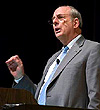 He shares a story told to him by Don Fisher, founder of the Gap: Some Years ago, Fisher, who was in the real estate business, went to a store and bout a pair of Levis. In too much of a hurry to try them on, when he got home he discovered they were an inch too short. He took them back, but the store where he’d bought them had such a small selection that they couldn’t accommodate him. Knowing that the ubiquitous Levis had to be stockpiled somewhere, he became so frustrated that it gave him an idea.
Posted by Michael McKinney at 12:13 AM
06.26.07

Newswire: The Science of Team Success
Posted by Michael McKinney at 08:09 AM
06.25.07

5 Leadership Lessons: What Really Matters According to John Pepper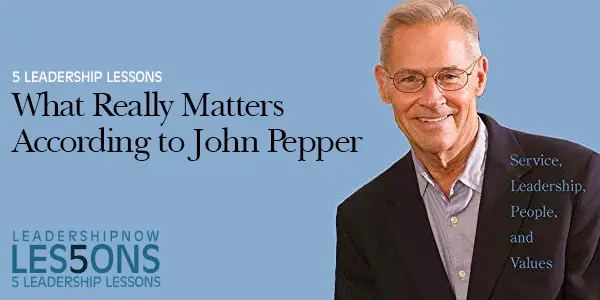
FORMER president, CEO, and chairman of Procter & Gamble, John Pepper has written a very friendly and open account of his forty years at P&G. He spends a good third of What Really Matters describing his rise up the corporate ladder—what he did do and what he would not do again—and how learned to build and manage leading product brands. He stresses the importance of building a community of leaders and leadership within a company and promoting from within whenever possible.

Posted by Michael McKinney at 08:27 AM
06.22.07

Corrupt Leadership: Tyranny of the Self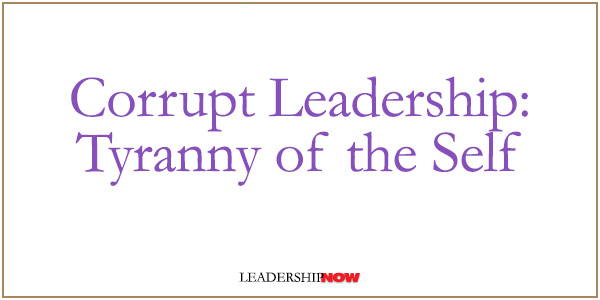
POWER CORRUPTS. Well . . . it can and too often does. The exercise of power — causing some to submit to the will of others — is necessary in any functioning state, organization or relationship. This power may shift, but it always exists. Power is not evil, but one should be cautious about the form it takes. Power controlled by the ego is something to be fearful of. Power tempered by humility and character is a gift. Bertrand de Jouvenel wrote colorfully about power in his 1949 book, On Power: Its Nature and the History of its Growth, “The leader of any group of men . . . feels thereby an almost physical enlargement of himself . . . Command is a mountain top. The air breathed there is different, and the perspectives seen there are different, from those of the valley of obedience.” With this kind of power should come understanding, without it, it is a slippery slope to self-delusion and tyranny. Power with out humility and compassion is ignoble
As part of their Fail States Index project, FundForPeace.org has been running a poll asking readers what they feel is the most critical cause of state failure. It’s not always easy to determine the source of failure. There is a tendency to allow oneself to fall into the abyss of dense complexity and deep subjectivity. Fortunately, there is no space for that here. The current results of the poll show corruption to be the overwhelming reason for failure. I would agree. Lack of education too, certainly limits one’s thinking and responses to life’s issues including corruption in government. LaBrent Chrite, professor at the University of Michigan Business School wrote, “Leadership and governance provide the predominant factor behind the dissonance or variance in progress seen across developing countries.” Corruption is ultimately the result of a total breakdown in leadership. It's wrong thinking and a wrong perspective on the part of the leader. In a corrupt culture, leaders have set the pace by looking after themselves instead of looking after their responsibilities. They have fallen to the tyranny of their own mind — belief in only one’s self. James Hillman wrote in Kinds of Power, “This kind of power, which makes us both effective and blind, goes deeper than merely being set on our ways. It is the tyrannical rule of style, the style of our thinking and working and connecting, the style of our words and gestures, and as it all fits together into the integrated personality, consciousness becomes tyrannical. We drink to escape from this tyrant; divorce, fall in love, quit jobs, move residences, go bankrupt, shoot rapids, hang-glide, fight our children—anything to escape the cruel and unusual punishment inflicted by the absolutism of successful rule. Everything has been subordinated to the one tyrannical pattern. All otherness is gone. One has become totally oneself and now suffers from totalitarian rule.” Are we tyrannized by our own mind?
Posted by Michael McKinney at 10:33 AM
06.20.07

Calls for Leadership: The Failed States Index 2007The Fund for Peace and Foreign Policy Magazine has just released the Failed States Index. It is a sobering survey of 177 countries ranked in order of their vulnerability to violent internal conflict and societal deterioration. It is based on 12 social, economic, political, and military indicators. (You can click on the map above to view a larger image detailing the status of various nations of the world, including your own.)The third annual Index found the greatest improvements over the last year in Liberia, Indonesia, Democratic Republic of the Congo and Bosnia. Unfortunately, the risk of failure is running higher than last year in Lebanon, Somalia, Equatorial Guinea, and Niger. Although these countries may seem world's away, their problems have consequences for all of us. Failing States have one thing in common—bad leadership. Foreign Policy concludes, “Many states must endure poverty, corruption, and natural disasters. But, for the weak, there is nothing more costly than a strongman calling the shots.” Billions in foreign aid and security are no match for bad leadership. Effective leadership can reverse a states slide to failure. Three editorials from the last two days, speak to the leadership issue behind these problems. First, here are some comments from The Daily Star in Lebanon titled, “If Lebanon becomes a failed state again, failed leadership will be to blame:” Lebanon's slide downward on the scale toward failure was more pronounced than that of any other country in the world. Who or what is to blame for the fact that Lebanon is once again rapidly on its way to becoming a basket case? Yes, the war with Israel created problems, but the leaders of Lebanon have compounded those "difficulties" and transformed them into an utter disaster. Leaders on both sides of the political divide are guilty of playing solely to their respective supporting audiences and ignoring everyone else. Not one has risen to the challenge of being a leader for all the Lebanese. [There exists a] paralyzing impasse that has been brought on by their political leaders' shared predilections for hubris and maximalism.From AllAfrica Global Media, we have this opinion from Nurudeen Jattau in Nigeria: It is needless to say that the tragedy of the contemporary nation-state of Nigeria is the seeming absence or the lack of visionary leadership in all spheres of governance. This precisely, is the singular reason why analysts are agreed that Nigeria may never reach anything close to its full potential as a nation. All things considered, and whichever way the pendulum swings, we must understand and appreciate the fact that leadership is invariably a means to an end, and not an end in itself.Consider finally, an editorial by Fouad Al-Obaid in the Kuwait Times: If one studies history and the civilizations that preceded us, one will most certainly not come across common names. However leaders on the other hand, do end up in the pages of history for several reasons. They do so when their failure is total and their incompetence is obvious to all. Just as much as they do so when their bravery, their tactics, their leadership capability along with their capacity to move minds and hearts in the most turbulent times is put to test and they succeed.Foreign Policy would agree with Mr. Al-Obaid. They write that effective leadership doesn’t necessarily make a leader popular. “But then, such leadership is exactly what more failing states need: a head of state who chooses continued reforms over his own power and recognition.” I am reminded of something John Lukacs wrote in 1993, “The great and enduring problems are political, not economic. They involve the lust for power, not for money. (But then, this has been true of mankind ever since Adam and Eve, misunderstood by Adam Smith as well as by Karl Marx.)” You don't have to look too hard to find applicable lessons here for any leadership role we find ourselves in.
Posted by Michael McKinney at 08:47 AM
06.19.07

Cast a Vote For the Best Leadership Blog To promote his forthcoming book, Remarkable Leadership (August 2007), Kevin Eikenberry has nominated this site as one of the 10 best leadership blogs on the web. So, if you like what you've been reading here then go and cast your vote. Voting ends July 6th. When you have voted, you are automatically entered into the drawing for the Remarkable Leadership Volume 1 CD Set - a package of materials gleaned from the Remarkable Leadership Learning System archives. This 12-CD set includes 6 workshops with Kevin Eikenberry and 6 interviews with renowned experts. This package is valued at over $550! Thanks for the vote!
Posted by Michael McKinney at 09:34 AM
06.18.07

Breaking Old Habits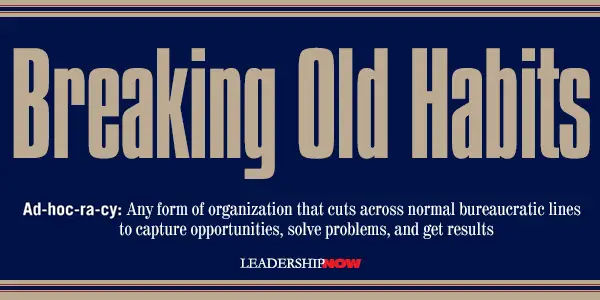 Robert Waterman, Jr. tells us in his book Adhocracy—any form of organization that cuts across normal bureaucratic lines to capture opportunities, solve problems, and get results—that we have created organizations that are resistant to change. He writes:
Robert Waterman, Jr. tells us in his book Adhocracy—any form of organization that cuts across normal bureaucratic lines to capture opportunities, solve problems, and get results—that we have created organizations that are resistant to change. He writes:
We’re controlled by ideas and norms that have outlived their usefulness, that are only ghosts but have as much influence on our behavior as they would if they were alive. He suggests four ways to help us break out of our comfort zones:

Posted by Michael McKinney at 08:41 AM
06.15.07

Growth: The Key to Leading for a Lifetime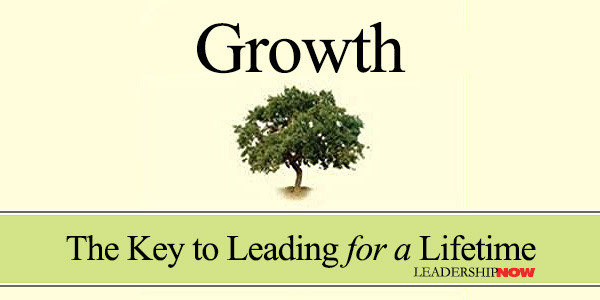 HARVARD Business School Press has thankfully reissued Geeks and Geezers by Warren Bennis and Robert Thomas, as a paperback titled, Leading for a Lifetime: How Defining Moments Shape Leaders of Today and Tomorrow. The focal point here is growth. The kind of growth that comes from working through and finding meaning in what they term the crucibles of our life—places or experiences from which one extracts meaning, meaning that leads to new definitions of self and new competencies that better prepare one for the next crucible.
HARVARD Business School Press has thankfully reissued Geeks and Geezers by Warren Bennis and Robert Thomas, as a paperback titled, Leading for a Lifetime: How Defining Moments Shape Leaders of Today and Tomorrow. The focal point here is growth. The kind of growth that comes from working through and finding meaning in what they term the crucibles of our life—places or experiences from which one extracts meaning, meaning that leads to new definitions of self and new competencies that better prepare one for the next crucible.
The ability to learn is a defining characteristic of being human; the ability to continue learning is an essential skill of leadership. When leaders lose that ability, they inevitably falter. When any of us lose that ability, we no longer grow. This book is about the importance of learning and how to keep learning. They write, “The ability to process new experiences, to find their meaning and to integrate them into one’s life, is the signature skill of leaders and, indeed, of anyone who finds ways to live fully and well.” In a nutshell, the ability to find context in your life experiences is key to success. They talk throughout the book about the importance that crucibles play in the transformational learning that is essential to leadership. They ask if your company incorporates opportunities for learning into the daily life of the organization. Do they provide leaders with the tools and the coaching required to make the most of their formative, and transforming, experiences? Companies need to encourage employees to reflect on what they are learning even as they face new challenges. Companies have to learn that quiet thoughtfulness may be more productive than frantic bustle. Employees need to be rewarded for the way they approach crises as well as for outcomes. Organizations have to distinguish between occasional good failure and habitual, unproductive failure. Employees need to be rewarded for their creativity, which inevitably means taking risks. They cite Edith Wharton from The Age of Innocence: “In spite of illness, in spite of the arch-enemy, one can remain alive long past the usual date of disintegration if one is unafraid of change, insatiable in intellectual curiosity, interested in big things, and happy in small ways.” Words to live and grow by, whatever your age. 
Posted by Michael McKinney at 12:35 AM
06.13.07

Andy Stanley on Communication and Leadership "Here's an incredibly important principle. You cannot communicate complicated information to large groups of people. As you increase the number of people, you have to decrease the complexity of the information. Congregational rule, when you're trying to make a complicated decision, works against the principle. So consequently, the guy with the microphone and the clearest message always wins. The most persuasive person in the room is going to win. Whether right or wrong." He was asked about criticisms that some churches seem so corporate in their leadership structure with the pastor as CEO. He says there is a sound principle behind the structure: “‘Follow me.’ Follow we never works. Ever. It's ‘follow me.’ God gives a man or a woman the gift of leadership. And any organization that has a point leader with accountability and freedom to use their gift will do well. Unfortunately in the church world, we're afraid of that. Has it been abused? Of course. But to abandon the model is silly.” I would add that we can find many that are afraid of that concept outside the church as well. It's often why we see leadership theory taking strange twists and turns in the literature today. Learning to operate without abusing the influence or power that goes with leadership at any level, requires a proper perspective as to why you are leading in the first place.
Posted by Michael McKinney at 03:10 AM
06.11.07

Bill Gates on Turning Caring Into Action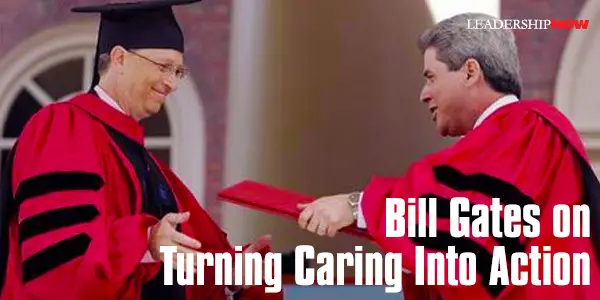
 If we can find approaches that meet the needs of the poor in ways that generate profits for business and votes for politicians, we will have found a sustainable way to reduce inequity in the world." Below are some edited excerpts from that speech. You can get the full text at the Harvard University Gazette or watch the video presentation below. The barrier to change is not too little caring; it is too much complexity.
Posted by Michael McKinney at 06:28 AM
06.08.07

The Key to Presidential Courage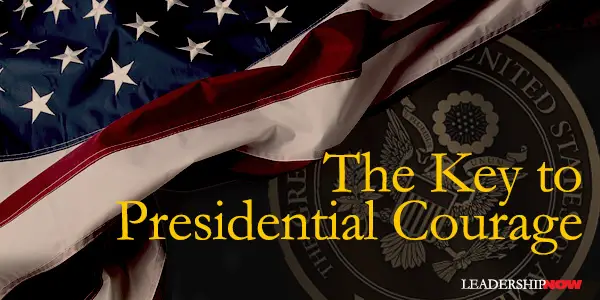
HISTORIAN Michael Beschloss, gave an engaging and entertaining talk to the Los Angeles World Affairs Council a couple of nights ago about his book, Presidential Courage. 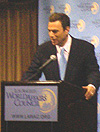 Beschloss said that in effect, Adams said, “I wanted more than anything to get a second term so that I had a chance in history to be the equal of General Washington. Now that’s gone. But, I can go back to Massachusetts and I can feel that my sacrifice was for something important. And I still have my wife Abigail (to whom he was so close) and my children and my farm and my books and my old veteran friends from the revolution.” Adams lived on for 26 more years; long enough to see his son John Quincy elected to be the sixth President. Bescholoss found his attitude a significant key to courage. Adams had a life beyond the Presidency. “We’ve got to look at candidates for President this year and next, and if you want someone who is capable of presidential courage, I would say one thing to look for is: Is this someone who is desperate to be President and hang-on almost at all costs or is this someone who if there is a moment requiring presidential courage—where they have to give it all up—has something else in his or her life—a family or other interests or even better yet, convictions (they can feel that they gave it up for doing the right thing)? The question was raised concerning the difference between courage and betrayal. We speak of courage on the one hand, but what is going on when a President betrays people by doing something that people do not like or different from what they said they would do. Beschloss responded, “In these stories, you will see where Presidents do tell American’s that it’s a good thing to do things that they may not first approve of, but it is not something that is wildly different from something they said in the campaign. They’re moving public opinion just somewhat beyond where it’s willing to go at the moment.” For example: Of the nine presidents I write about, only one had to pay the price of losing reelection and that was John Adams. Everyone else was a good enough politician or a good enough educator that they were able to continue. For instance, FDR, in trying to get a third term could say to Americans, “Well, you may be disturbed by my building up our defense, but think of it this way. Maybe it’s the best way to scare off Hitler if we’re really strong with 50,000 airplanes and so on.” Or in Abraham Lincoln’s case, he stuck to the Emancipation [Proclamation]. But rather than just say, “Well, I’m going to be a courageous guy, and I’ll just go down in flames,” he was such a good educator that he said to Americans, “You may not like the idea of fighting the Civil War also to free the slaves, but since I’ve declared the Emancipation, 200,000 African-Americans have come across enemy lines from the South and they’re all working hard in our Union War effort. If I now dispense with the Emancipation, they’d sit on their hands and we’d lose the war.” 
Posted by Michael McKinney at 02:34 AM
06.06.07

10 Rules to Fuel Your Life, Work, and Team with Positive Energy
JON GORDON writes in The Energy Bus, “No one goes through life untested, and the answer to these tests is positive energy.” Fortunately he is not referring to the kind of rah-rah positive energy that makes you roll your eyes and close the book as the title might suggest. Instead he refers to “the kind of positive energy consisting of vision, trust, optimism, enthusiasm, purpose, and spirit that defines great leaders and their teams.” The Energy Bus is a well-executed fable that reveals 10 secrets for approaching life and work with the kind of positive, forward thinking that leads to true accomplishment - at work and at home. The story will resonate with anyone with any life experience at all. The 10 rules are:
Jon Gordon's take on these rules is good and worth a look at. He has created a web site to support the book. 
Posted by Michael McKinney at 09:24 AM
06.04.07

Up the OrganizationJossey-Bass has released a commemorative edition of Robert Townsend’s (1920-1998) leadership classic, Up the Organization: How to Stop the Corporation from Stifling People and Strangling Profits. Originally published in 1970, this candid and provocative book deserves to be re-read every year. Here's a sample of Townsend's straightforward and practical advice:On People: Why spend all that money and time on the selection of people when the people you’ve got are breaking down from under-use. Get to know your people. What they do well, what they enjoy doing, what their weaknesses and strengths are, and what they want and need to get from their job. And then try to create an organization around your people, not jam your people into those organization-chart rectangles. On Delegation: Many people give lip service, but few delegate authority in important matters. And that means all they delegate is dog-work. A real leader does as much dog-work for his people as he can: he can do it, or see a way to do without it, ten times as fast. And he delegates as many important matters as he can because that creates a climate in which people grow. On Leadership: True leadership must be for the benefit of the followers, not the enrichment of the leaders. In combat, officers eat last. Most people in big companies today are administered, not led. They are treated as personnel, not people. On Rewards: Rewarding outstanding performance is important. Much more neglected is the equally important need to make sure that the underachievers don’t get rewarded. This is more painful, so it doesn’t get done very often.  On Compromise:Compromise is usually bad. It should be a last resort. If two departments or divisions have a problem they can’t solve and it comes up to you, listen to both sides and then, unlike Solomon, pick one or the other. This places solid accountability on the winner to make it work. On Compromise:Compromise is usually bad. It should be a last resort. If two departments or divisions have a problem they can’t solve and it comes up to you, listen to both sides and then, unlike Solomon, pick one or the other. This places solid accountability on the winner to make it work.
Robert Townsend served as the president and chairman of Avis Rent-a-Car from 1962 to 1965 during its celebrated turnaround. You may remember the infamous the "We Try Harder" advertisign campaign that helped to tranform it into a world-class organization.
Posted by Michael McKinney at 08:33 AM
06.01.07

Leadership Books: June 2007Here's a look at some of the best leadership books to be released in June.




The LeaderShop specializes in providing books and resources to businesses—for training, conferences and gifts—in large quantities at substantial discounts. On orders of 100 or more copies of a title, we can usually obtain additional discounts and/or free shipping. If you need an order expedited or are looking for a title you can't find on our title index, just call 800-423-8273 and ask about it. If it's out there we can generally get it for you. And thanks for your support.
Posted by Michael McKinney at 12:02 AM
|
BUILD YOUR KNOWLEDGE


How to Do Your Start-Up Right STRAIGHT TALK FOR START-UPS 
Grow Your Leadership Skills NEW AND UPCOMING LEADERSHIP BOOKS 
Leadership Minute BITE-SIZE CONCEPTS YOU CAN CHEW ON 
Classic Leadership Books BOOKS TO READ BEFORE YOU LEAD |
| |||||||||||||||||||||||||